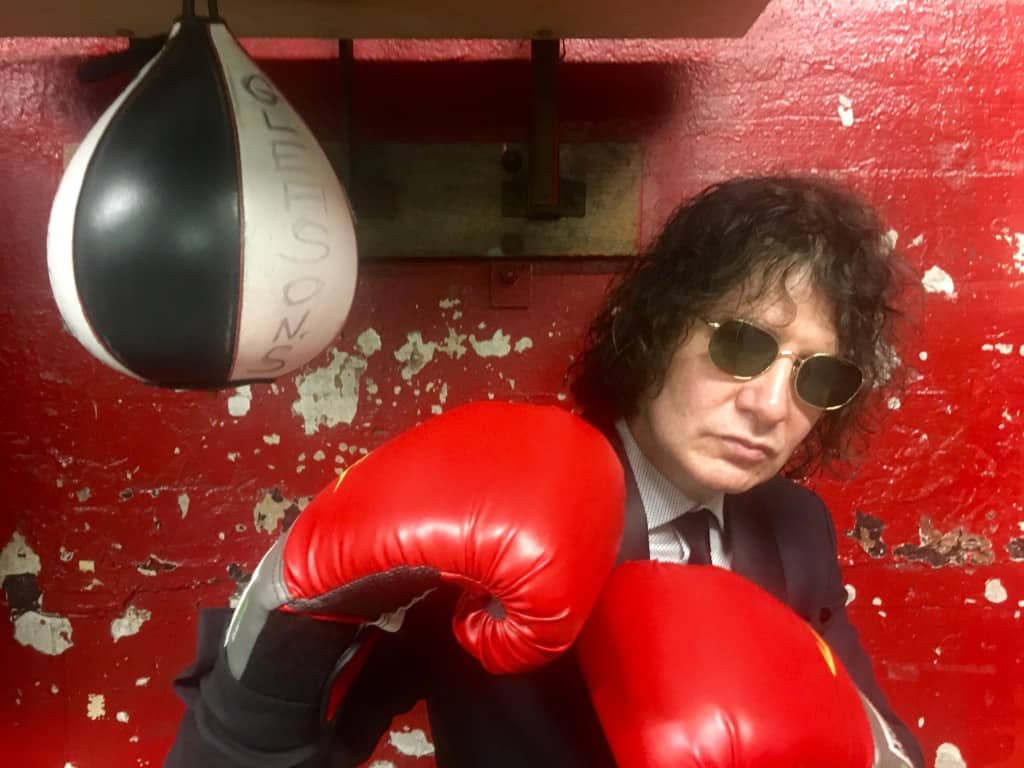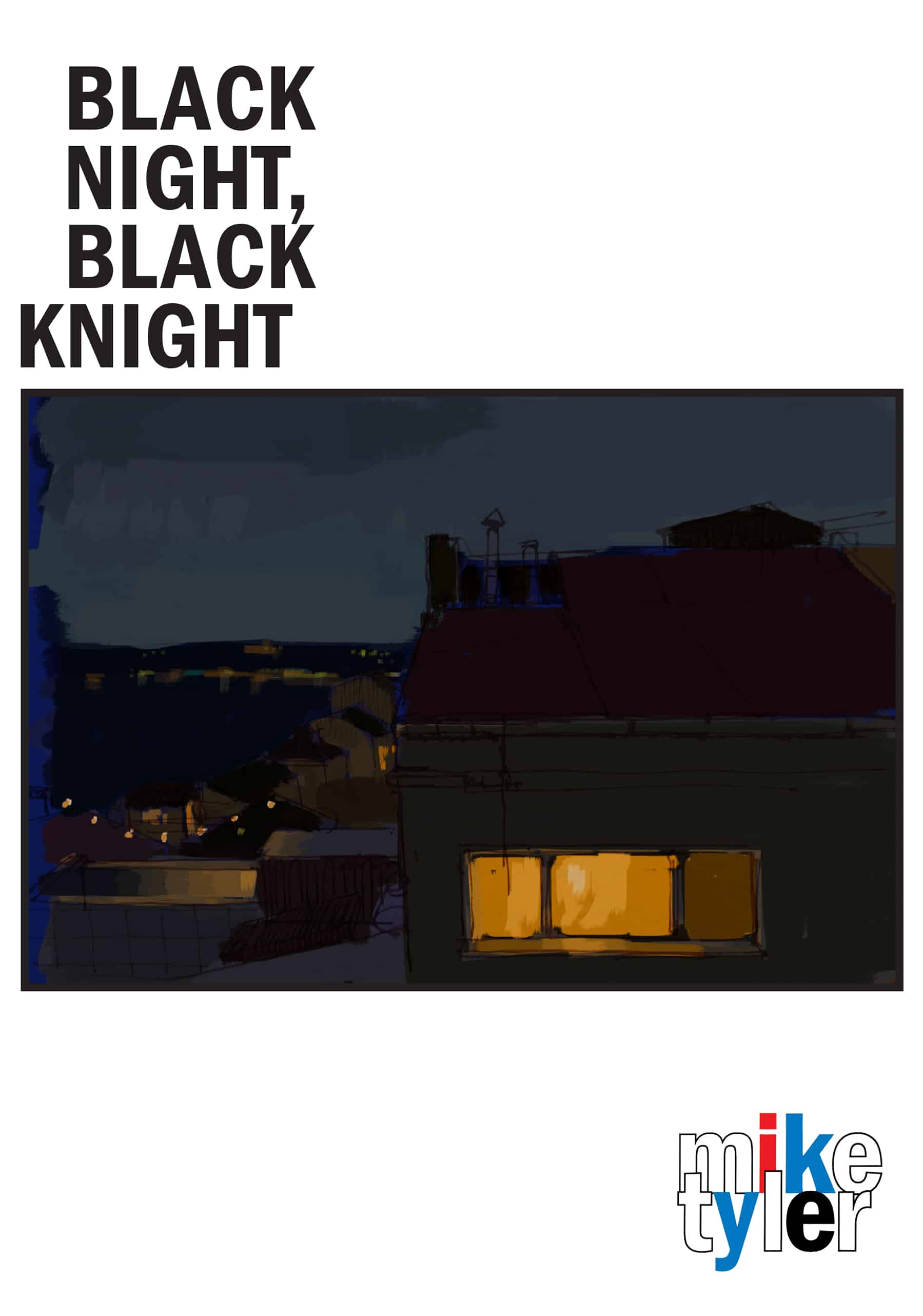In his new book, Black Night, Black Knight, Tyler’s poems evoke a time when phone booths still existed, you could smoke on planes, and Richard Nixon had just died—inspiring the shortest poem in the book: “Good.” Infamous for breaking his arm during a particularly tumultuous reading, Tyler’s writing is fueled by a red-hot, molten exchange with his audience and his contemporary hallucinatory and sharp-edged phrasing give a direct experience of a moment in poetic time that The Village Voice says “pulses with the same euphoric heartbeat that made Rimbaud the proto punk rock hero.”
Poets were rock stars. It was the 90’s and they touched the live nerve of popular culture. Not since the Beats banged their bongos had this proudly obscure art form practiced by teenage girls and goggled academics hit out like the super swing of a juiced-up baller into the stratosphere of a larger audience. At the center of this movement was Mike Tyler, a poet who wanted to bridge the gap between his heroes—Walt Whitman, Wallace Stevens and William Carlos Williams—and the direct, jagged, jaw-displacing punk rock rebellion of the music and performances he loved.


